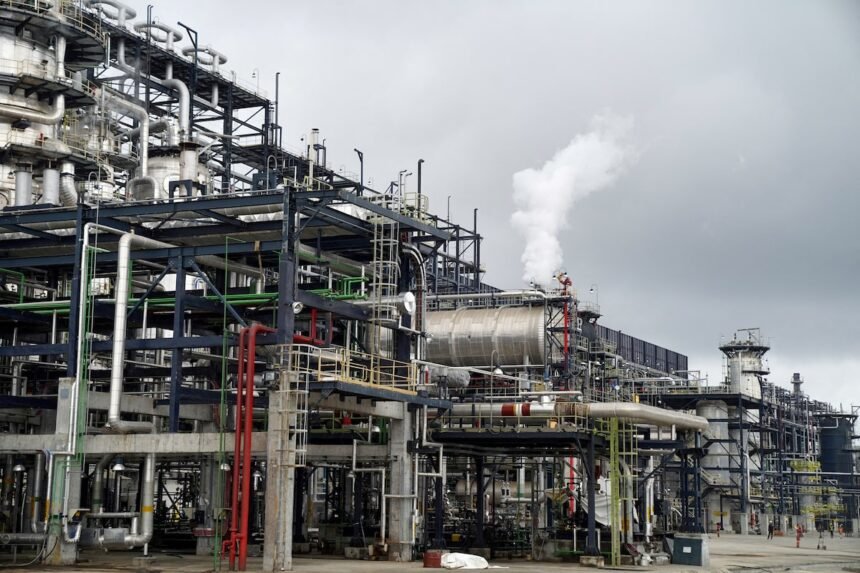Africa’s largest oil refinery, the Dangote Oil Refinery, is close to reaching full production capacity and is expected to operate at 100% within the next 30 days. The refinery’s executive director, Edwin Devakumar, confirmed that operations had already reached 85% and were steadily increasing.
The refinery, built by Nigerian billionaire Aliko Dangote in Lagos, can process 650,000 barrels of crude oil per day. It began production in January 2024, producing diesel, naphtha, and jet fuel. By September, it had started making petrol, strengthening its position in the energy sector. However, a lack of sufficient local crude oil initially slowed operations.
Although the refinery had an agreement with the Nigerian government to buy crude using the local currency, it had to import crude to meet its production needs. To solve this issue, it has now requested 550,000 barrels of crude per day from Nigerian oil producers for the first half of 2024. In response, Nigeria’s oil regulator has warned that oil producers who do not supply the required crude to local refineries will not be granted export permits.
The refinery has helped businesses and consumers by reducing diesel prices several times. Since production started in January 2024, the price has dropped from ₦1,700 per litre (US$1.12) to ₦1,020 per litre (US$0.66), making fuel more affordable. The most recent price cut of ₦55 per litre (US$0.036) came after development economist Ken Ife revealed that the refinery had sacrificed over ₦10 billion (US$6.7 million) to keep petrol prices stable during the festive season.
As part of its expansion, the refinery is now selling products internationally. During a recent visit by Nigerian professionals, Aliko Dangote announced that it had sent two shipments of jet fuel to Saudi Aramco, marking an important step in global trade. Edwin Devakumar added that the company is actively looking for more markets.
With steady progress towards full capacity, the refinery is expected to strengthen Nigeria’s energy sector by improving fuel security, reducing dependence on imports, and positioning the country as a key refining hub. If crude oil supply remains stable, it could compete with European refiners and play a major role in the global oil market.










